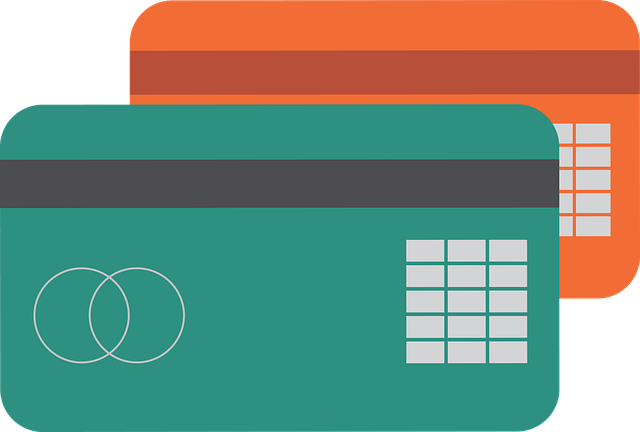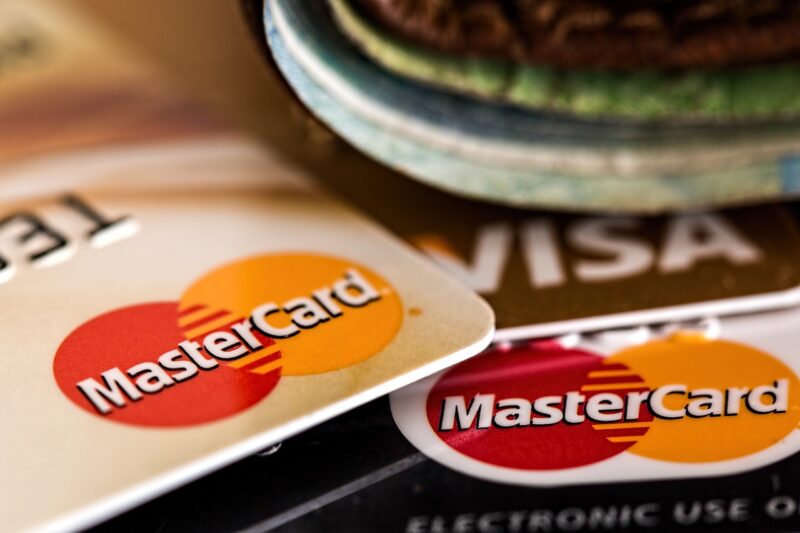What is credit card refinancing? It's a strategy that you can use to ease your debt burden and make it manageable if you have multiple credit cards.
If you are drowning in a credit card debt crisis, any strategy that can help you out is welcome.
Nothing can be more frustrating than daily calls from creditors and debt collectors. The situation is more stressful when you have no idea how to pay off the debt.
Credit cards charge high-interest rates ranging between 15% and 25%. Without a strategy for repaying them, you can sink further into a financial crisis within a short period.
That is where credit card refinancing becomes a good idea.
Credit card refinancing is a creative strategy for managing your debts. It helps you avoid debt pressure by allowing you to settle them for a longer period. Additionally, it retires high-interest credit card debts and offers ones with lower and manageable APR.
What is credit card refinancing, and how exactly does it work?
See Related: How to Get 800 Credit Score
Table of Contents
What is Credit Card Refinancing?

Simply, credit card refinancing is a credit card debt consolidation loan option.
See Related: Best Startup Business Credit Cards with No Credit
But what is a Debt Consolidation Loan?
A debt consolidation loan is a type of financial loan that helps you to pay off your high-interest credit card debts by consolidating them into a single, lower-interest-rate borrowing arrangement. This can be an excellent way to reduce your overall monthly payments and make progress on your debt repayment timeline more manageable.
So, with credit card refinancing, you consolidate credit card debt. That means you take a new loan from credit card companies to pay off one or more existing credit card balances.
The new loan can be a credit card or another credit facility with a lower annual rate.
The new loan facility has lower interest rates and can even be 0%, like in the case of a balance transfer credit card. The interest remains fixed throughout the repayment period.
Simply put, you get a single credit facility with a fixed rate, so you know how much you need to pay per month.
See Related: How to Leverage Credit Cards to Build Wealth
A Perfect illustration
For instance, if your credit card is charging 25% APR, you can refinance it with another offering of 12% or zero APR. Alternatively, you can combine all your credit cards into a personal loan offer of 11%.
This way, you will ease your debt repayment pressure as it allows you to restructure your debt and extend repayment time.
When refinancing credit card debt, comparing offers from multiple lenders is crucial. This action will help you find the best rates and terms that fit your situation.
Also, you should assess your ability to make the monthly payments on the new loan. The process attracts origination fees and other costs. As such, you should consider them before subscribing to the idea.
See Related: How Do Credit Card Companies Make Money
Ways to Refinance Credit Card Debt

You have many options when you decide to refinance your credit card loan. Depending on your credit history and score, you can choose one fit for you. Here are some of the options:
Balance Transfer Credit Card
Balance transfer credit card is the most popular option for paying off your credit card debts through refinancing. This approach involves moving your debt from a credit card with high interest to new credit cards charging zero or lower interest. These credit cards are usually promotional and attract 0% interest.
You will only pay the principal amount when you transfer your high-interest credit card to this card. This means you have an easy time paying off your debts. You can access this type of credit card via credit unions or online lenders.
However, the balance transfer credit cards have a limited time of 12 to 18 months. You must clear your credit card debt or pay higher interest within this period.
Also, some balance transfer cards attract a fee of 3% to 5% of the total debt amount. This aspect increases your loan cost.
The requirement of a high credit score to qualify is another setback to this option. You must have a credit score of 680 and above to qualify. This aspect can be challenging for someone in a credit card debt crisis.
See Related: Can You Pay a Credit Card with a Credit Card
Personal Loan
If a balance transfer credit card does not favor your situation, you can opt for a personal loan. This option of refinancing credit card loans is a good idea if you have credit scores of 670 and above. However, you can still get it with low scores, but it will attract higher interest.
The loan consolidates all your credit card debts into a single monthly payment. It sources the payment from your paycheck.
You also do not require security to access it. Before considering this option, you need to know the costs and fees involved. Personal loan lenders will demand prepayment and exit fees which can increase the loan cost.
Despite these requirements, it will help you ease the debt burden. So, you can approach your credit union or local bank and request a personal loan to refinance your credit card debt.
See Related: How to Pay Off Credit Card Debt: Amazing Tips
Home Equity Loan

Your home equity can be another option for clearing your credit card debt burden. You can utilize the Home Equity Line of Credit (HELOC) if you own some property.
The option offers low-interest rates than other credit facilities. It will allow you to consolidate your credit cards into a single home equity loan.
The rates charged on home equity loans are similar to those of a mortgage. This means you will get lower monthly payments and interest rates.
Your amount will depend on your home equity and your credit scores. However, you need to be aware of the costs involved. The option can also put your home at risk of foreclosure. Plus, it is susceptible to property markets.
See Related: How to Invest in Real Estates: Ideal Ways
Debt Management Plan
Sometimes, your credit scores might deny you an opportunity for new lines of credit. This aspect leaves you on the verge of falling into a financial crisis.
Before this happens, you can opt for debt management plan enrollment. This plan is a program by non-profit credit counseling service providers.
The agencies help you to consolidate your credit card loans into a single facility. They also negotiate with creditors for interest reduction.
Usually, the agencies will have your loan distributed for up to 5 years. That way, you will have affordable monthly repayments to help you repay the loan within this period. The plan will feature in your credit reports until you clear the debt.
Also, you will have to close all credit card accounts while in the program. This action will affect your credit scores.
Essentially, it attracts a monthly fee of between $30 and $50. The cost can be huge, but it will help you from falling into a financial crisis, creditor pressures, and other issues.
See Related: How to Get 800 Credit Score
Is Credit Card Refinancing a Good Idea?
After you understand what is credit card refinancing, the next question is can it be a good option when you have high credit scores? The option has both positive and negative impacts on your credit score.
Repaying your credit card loan with options like balance transfer offers you lower interest. But it requires you to have good credit scores and may come with additional costs.
Also, credit card refinancing hurts your credit score because of the hard inquiry the lender will make.
Ideally, this approach does not change your loan amount. If you fail to clear your debt within the period allowed, you will fall back into the same ditch.
Overall, this credit card debt payment option should be good if it helps you enhance your credit position. If you have challenges meeting monthly payments, you should not consider it.
See Related: How to Improve a Credit Score in 30 Days
FAQ
What does credit refinance mean?
Credit refinance replaces your current credit card debts with a new loan facility or credit card with a lower interest rate. You repay an existing debt with a new debt and replace the old agreement with an updated one.
Does credit card refinancing hurt your credit score?
Credit card refinancing will come along with hard credit inquiry, which hurts your credit scores. But the result can be different when you opt for debt consolidation as the refinancing option.
Does credit card refinance lower credit age?
Yes! Credit card refinancing adds a new line of credit. This decreases the average age of accounts and hurts your score. According to the FICO credit scoring model, new lines f credit account for up to 15% of your score.
